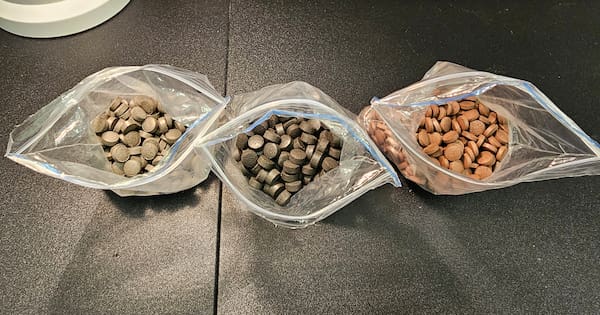In the North Island, eight people suffered lead poisoning after taking traditional Indian medicine.
Te Watu Ora National Health Protection Clinical Director Dr Susan Jack said two of these patients were at serious risk of death.
“Their blood lead levels were very high,” she says.
The cases in the past three months have occurred in Auckland and the Bay of Plenty.
“This is higher than we have seen in similar periods in the past,” Jack said.
Te Watu Ora and the National Poisons Center have sent warnings to doctors to watch for symptoms.
“Some of these patients had multiple emergency room visits before it was determined that they actually had elevated blood lead levels.”
High blood lead levels are difficult to identify because symptoms are not specific and can range from abdominal pain to headaches and even seizures.
These patients were taking products that are part of the traditional Indian medical system of Ayurveda.
“There are a wide variety of Ayurvedic medicines out there, but at the moment we don’t have a good overview of all the medicines that may be available or in use in New Zealand,” Jack told 1News. Ta.
Te Whatu Ora tested a small number of product samples.
These are used for a variety of reasons, including improving fertility and sexual enhancement.
Tests found high levels of lead as well as other contaminants.
“They don’t have names. They’re little brown pills or little black pills, often in a plastic bag,” Jack explained.
Some Ayurvedic products, such as Kamini, contain opium, which is not only illegal in New Zealand but can also cause addiction.
Many people in South Auckland are being treated for Kamini addiction. Some people suffered withdrawal symptoms when trying to reduce their dose and sought help.
In 2020, police charged three people with importing Kamini, mostly from India and Australia.
Last year, customs blocked 12.5kg Kamini from entering New Zealand.
“Customs efforts to intercept smuggling have identified attempts to bring Kamini into New Zealand and held those attempting to import it illegally accountable. This includes investigation and prosecution,” Customs Investigations Manager Dominic Adams said.
One person is currently in court on charges relating to about 280 kg of Kamini and Barshasha (a similar herbal medicine containing opioids).
Jack said people should be careful when picking up products where they don’t know what’s inside.
“High levels of lead and other heavy metals can be contaminants in these types of medicines,” Jack says.
All eight patients who had high lead levels in their blood have now recovered.
If you would like to find out more about the use of Kamini in New Zealand, please contact [email protected].
Written by Anna Mycott

